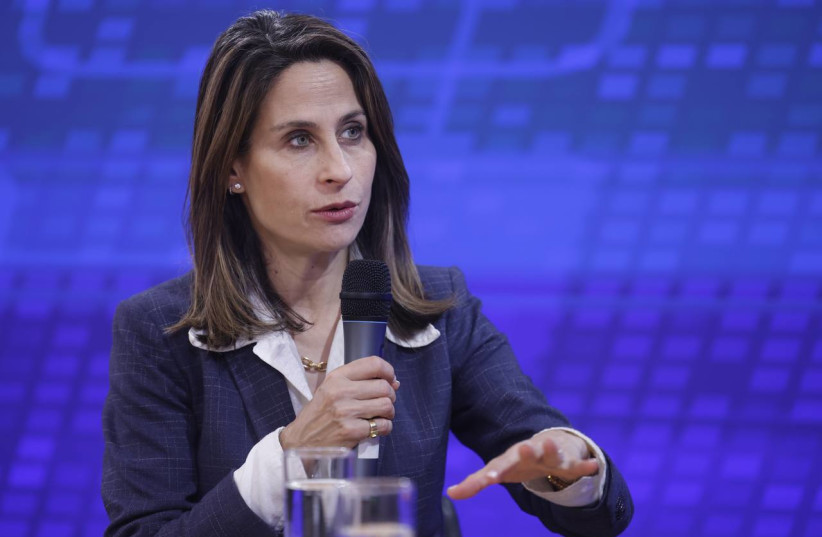There is nothing professional about the “so-called” Israeli judicial reforms, which could turn Israel into a haven for corruption, National Unity MK Orit Farkash-Hacohen said on Tuesday in conversation with Zvika Klein at The Jerusalem Post’s Democracy 2023 conference.
Farkash-Hacohen explained that the reforms have her worried due to the lack of professionalism and how it threatens to destabilize the Jewish state’s checks and balances.
“I’m worried Israel could become a haven for corruption,” she explained.
"I'm worried Israel could become a haven for corruption."
MK Orit Farkash-Hacohen
Farkash-Hacohen is a licensed attorney who served as science and technology minister, tourism minister and strategic affairs minister. Before that, she was the first woman ever to head Israel’s Electricity Authority.
Now sitting in the opposition, she feels that such a diverse resumé gives her a unique perspective on the issue of judicial reforms, as does the fact that she comes from a centrist party.

“The fact that I come from a centrist party gives me the privilege to look at it through unbiased eyes,” Farkash-Hacohen explained.
Israel's judicial system is its shield in The Hague
In her tenure as strategic affairs minister, she saw first-hand how important Israel’s “prestigious judicial system” is when dealing with legal attacks against Israel launched in The Hague. These serve as an important protection for the Jewish state, she said, adding that the judicial reforms threaten to take that protection away.
Judicial reform is a major topic in Israeli discourse, having been pushed forward by Justice Minister Yariv Levin shortly after he assumed his post.
It has sparked widespread protests reflecting widespread outrage. She cited the recent hi-tech protests in Tel Aviv as an example.
“The hi-tech industry is a key factor in the Israeli economy,” she said. “They went out on the protest today in the streets of Tel Aviv. They are part of a big and growing movement of the biggest law firms in Israel and the engineers and architects and so on. And I think that these voices should not be ignored.”
However, she disagreed with Supreme Court President Esther Hayut that nothing needed to be changed.
In particular, she did say that the proposed Override Clause was not without merit – albeit it should only be done with a very significant majority that included members of the opposition and not just 61 MKs, and it should only be done with issues that don’t interfere with personal and constitutional rights.
But overall, this does not mean that the courts should be threatened.
She ended her time at the conference with a tip for Prime Minister Benjamin Netanyahu.
"Netanyahu should be remembered as a prime minister who brought to Israel the Abraham Accords and contributed other good things. He should not be remembered as the one who ruined our society and tore us apart."
Orit Farkash-Hacohen
“Netanyahu should be remembered as a prime minister who brought to Israel the Abraham Accords and contributed other good things. He should not be remembered as the one who ruined our society and tore us apart,” Farkash-Hacohen said, warning that damage caused by judicial reform may be irreversible.